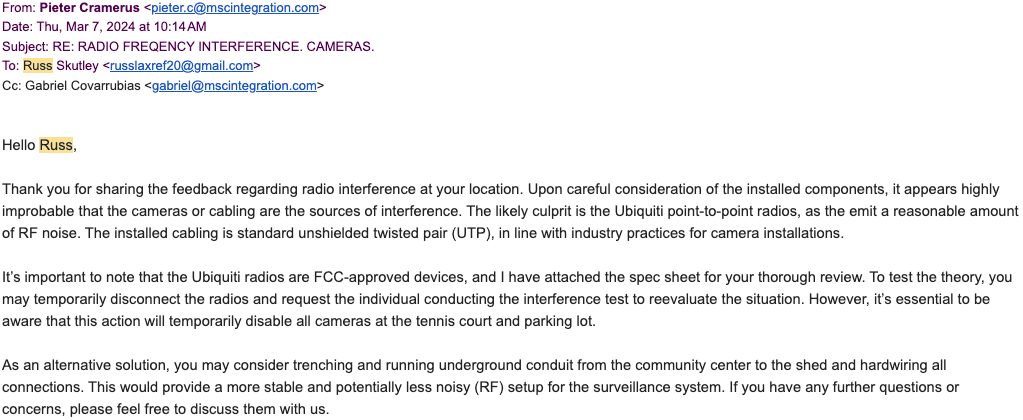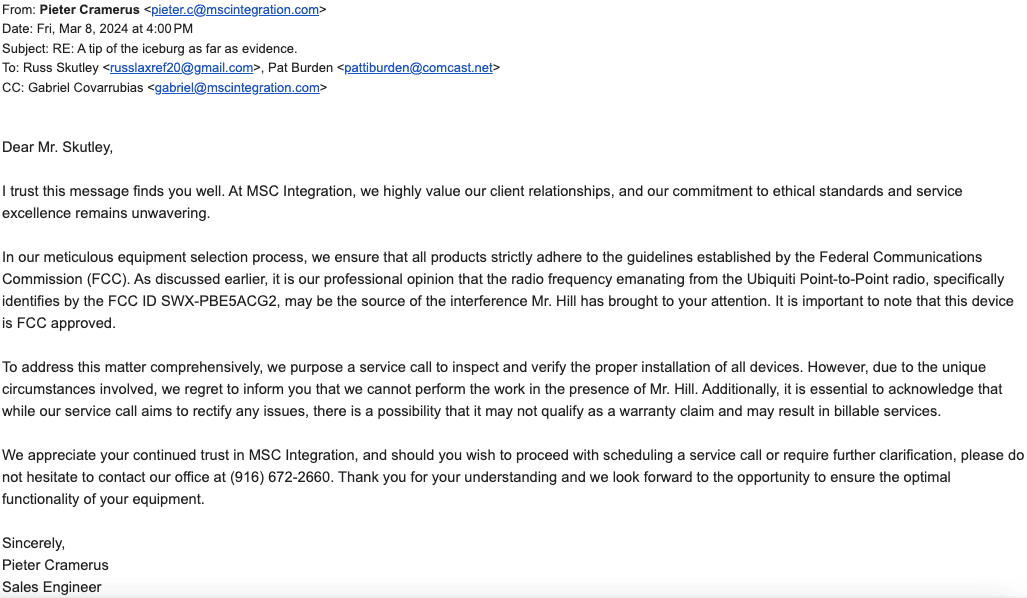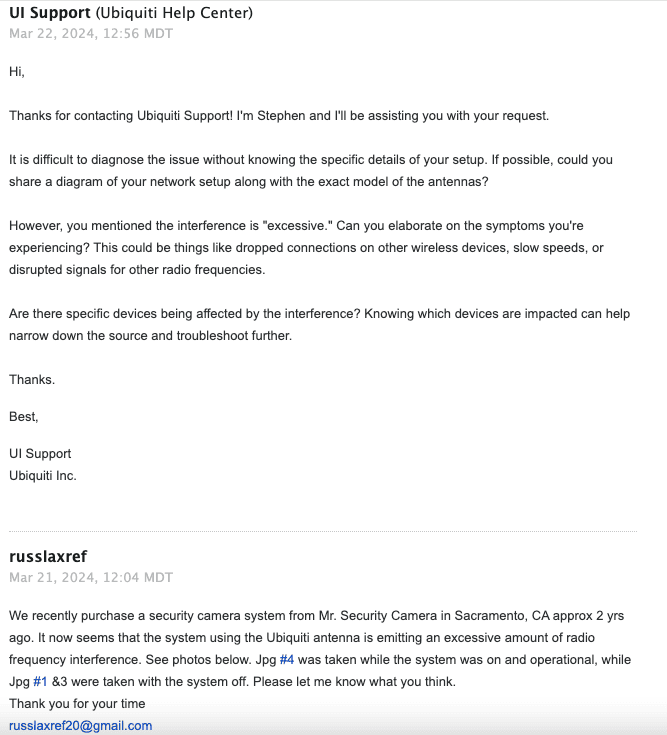Clubhouse and RV Parking Security Camera System RFI
⚠️ Edgewood HOA RFI Notice & Community Advisory
The Edgewood HOA has powered back on all RFI-emitting equipment. They know this equipment is defective.
See Mitigations below.
Need help filing an FCC complaint?
Please call Shane Hill @ (279) 252-8072 or email shanehill@edgewoodhoa.org.
How-to and resources: birdcageheights.com/FCC
The Edgewood Homeowners Association on Spyglass is causing many residents in the adjacent neighborhoods electrical problems, due to powerful radio frequency interference generated by their security camera system installed on and around the “Clubhouse” (poolhouse) and RV parking area.
The biggest issue for those living near the Edgewood property is the Radio Frequency Interference (RFI), which may affect Wi-Fi, television reception, bluetooth, cellular phone connectivity (including emergency calls), public-safety two-way radios, and sensitive medical devices (e.g., pacemakers, apnea monitors, powered wheelchairs). For example: source.
If you live adjacent to the Edgewood HOA—Kingswood Dr, Cypress Point, Doral Ct—you may also see aggressive weed growth from neglected landscaping, extremely bright parking lot lighting, and strange noises at night from parked RVs (all reported by neighbors).
If you look at the installation of the camera system:


The problem with the camera system is it emits powerful RFI.
What is RFI? Radio frequency interference is electromagnetic interference (EMI) from unwanted RF signals that disrupt devices and radio systems. It can degrade Wi-Fi, TV/radio reception, cellular phones, and more.
I told Russ (Edgewood Board) our phones aren’t working reliably for texts and calls. “My wife and I discussed many times we’ve had problems making and receiving calls at home. We’re disturbed knowing that if we needed emergency services, we might not have been able to reach them.”
I offered tools, time, and even to purchase and donate replacement hardware if needed to resolve the issues. Nothing progressed until I threatened an FCC complaint. The RFI still persists to this day. More effort has been spent avoiding the issue than would likely ever have been needed to fix it.
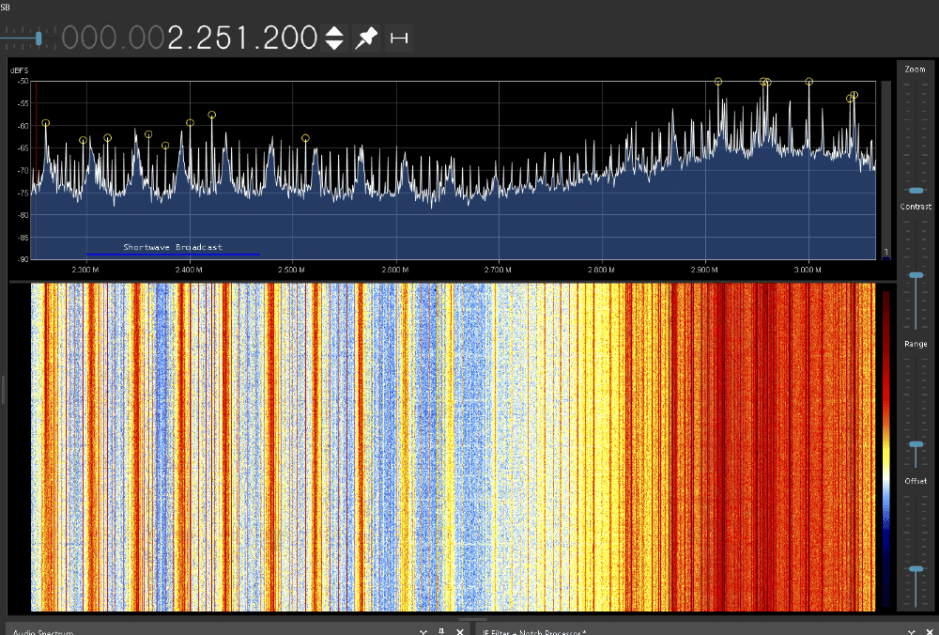
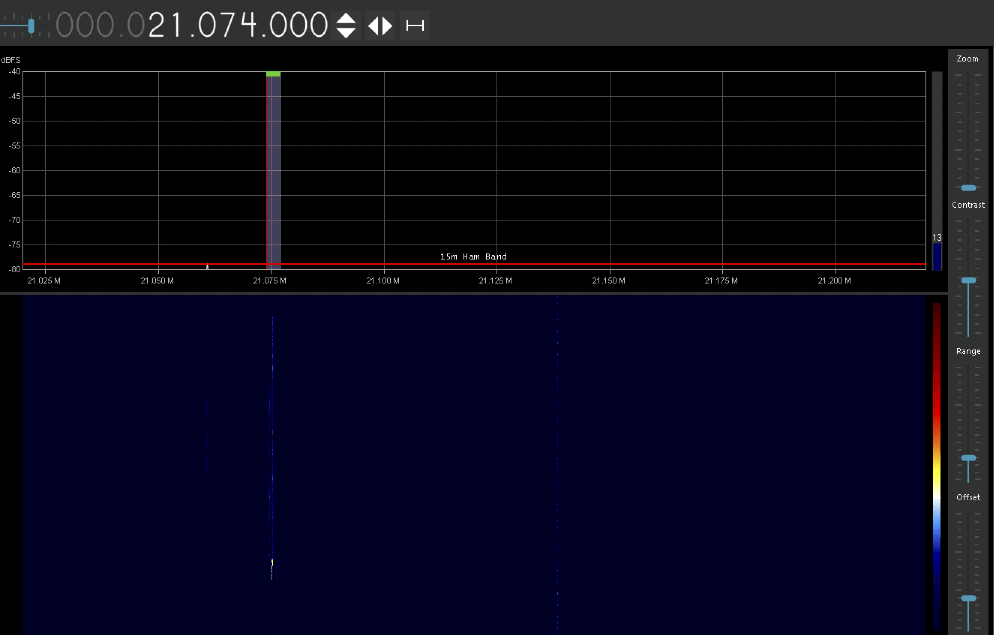
The entire system has two identical endpoints: one covers the RV parking lot; the other covers the clubhouse/pool. They’re linked with dish antennas between fence and clubhouse. A short-range point-to-point microwave link here is dubious.
Both the PoE networking gear and power components generate RFI, which is propagated by the metal conduits and the chain-link fence acting like a giant antenna.
I believe most emissions emanate from the DC-DC buck converters powering switches/cameras with battery backup. RF travels through unshielded ethernet cables, couples to the conduit, and in RV Parking, the entire fence—creating high-voltage standing waves and very powerful RFI traveling a great distance, potentially impacting people hundreds of miles away in the evening, and within a few miles on the ground. The RFI can interfere with aeronautical communications even at 40,000 feet, line of sight.
Radio works with photons (like light) and can radiate in unusual patterns. A device might work near the clubhouse but fail on my second story. It may work today but not tomorrow.
The radiation pattern here is significantly vertical with lobes near ~40°, skimming my house. I couldn’t “see” the RFI near the ground.
This is a real, ongoing problem. When power is removed from the camera system, the RFI stops.
Radiofrequency interference with medical devices (NIH/NLM)
End update
Ubiquiti-brand PoE switches are notoriously noisy. The top spectrum image (from another report) shows Ubiquiti-related noise; the lower is Edgewood HOA’s camera system—signatures are similar despite model/installation differences.
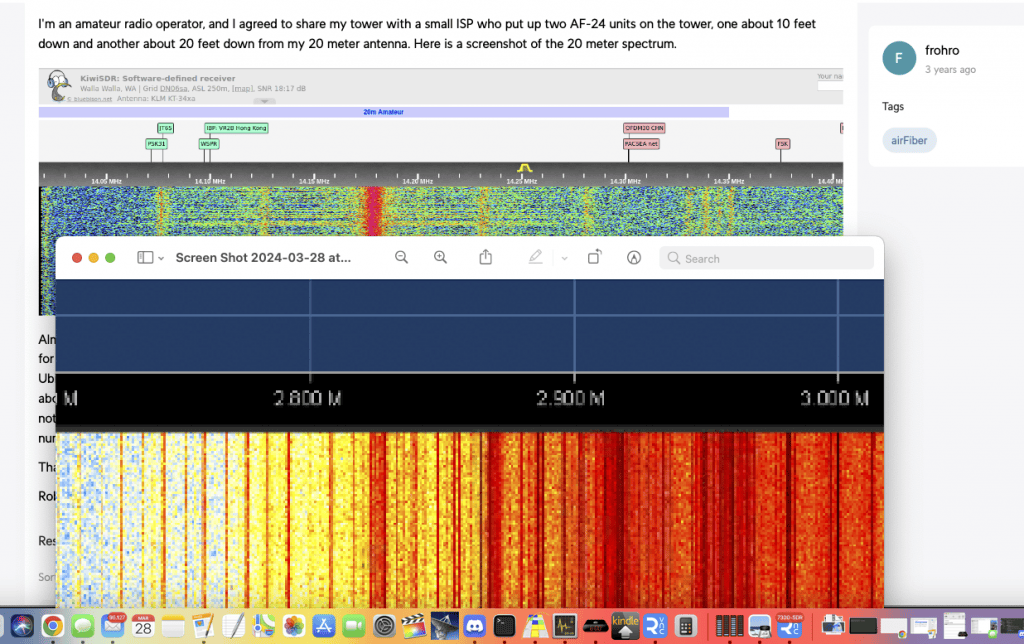
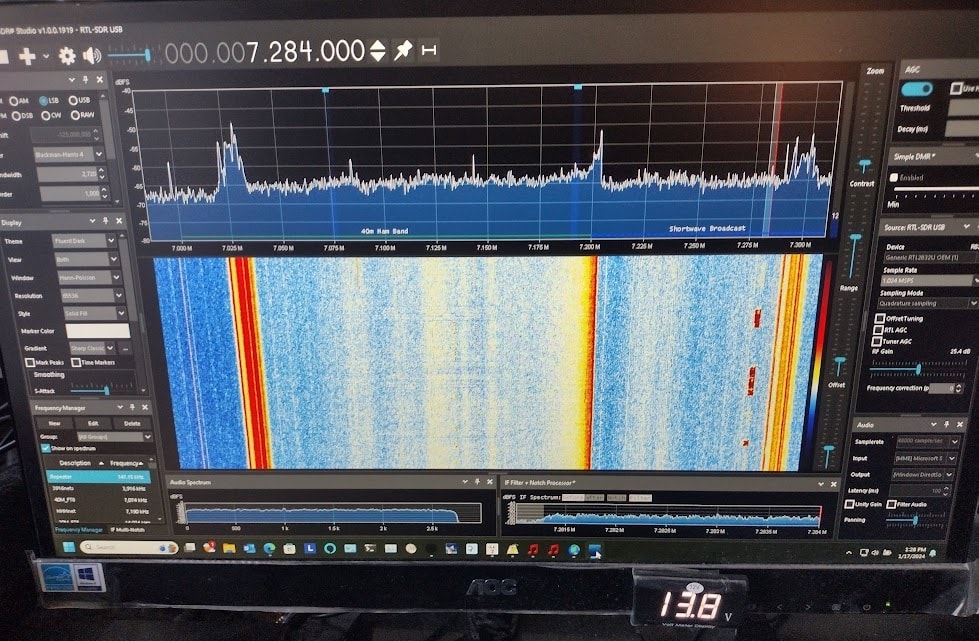
This system generates two distinct, powerful RFI signatures from both endpoints. I was aware that this interference existed for quite some time, but as it was always so powerful and so unrelenting, I always thought it was the result of faulty SMUD equipment. So much so I had been working with a SMUD engineer for years, until now, trying to find and solve the problem—until finally isolating these emitters.
In fact, the problem is multiple emissions from two separate endpoints of the same PoE/microwave link/camera system.The power/redundant components and PoE switch (likely Ubiquiti) radiate at both endpoints. The long conductive runs act as antennas with poor RF grounding.
By reciprocity, if RF leaks out, RF gets in—these cameras have likely been unreliable.
Emissions are unlawful. Any time components are powered, they radiate harmful emissions.
This is an inadvertent transmitter, generating broad-band interference that moves around the spectrum. It can easily compromise law-enforcement and first-responder radio in nearby neighborhoods.
Mitigations that may actually work:
- Choke the cables: Clip-on ferrites (mix 31 or 43) on both ends of every Ethernet/PoE and DC lead; stack multiple turns if possible.
- Shield & bond correctly: Replace long UTP with STP; bond shield to chassis/earth at one end (usually equipment end). Put PSUs and switches in metal enclosures with EMI gaskets; add an AC EMI line filter on the feed.
- Don’t use the fence as a “ground”: Avoid attaching device grounds to the fence. If the fence is already bonded (often via posts), ensure it’s a clean earth bond and remove any accidental current paths from the equipment to the fence.
- Cable routing: Keep low-voltage/data runs away from the fence and from long parallel metal (rails, gutters). Cross at right angles if you must.
- Microwave radios: Keep dishes/horns physically clear of the fence (several feet), use proper radomes, and verify they’re on legal channels and within EIRP limits (side-lobes can illuminate nearby metal).
